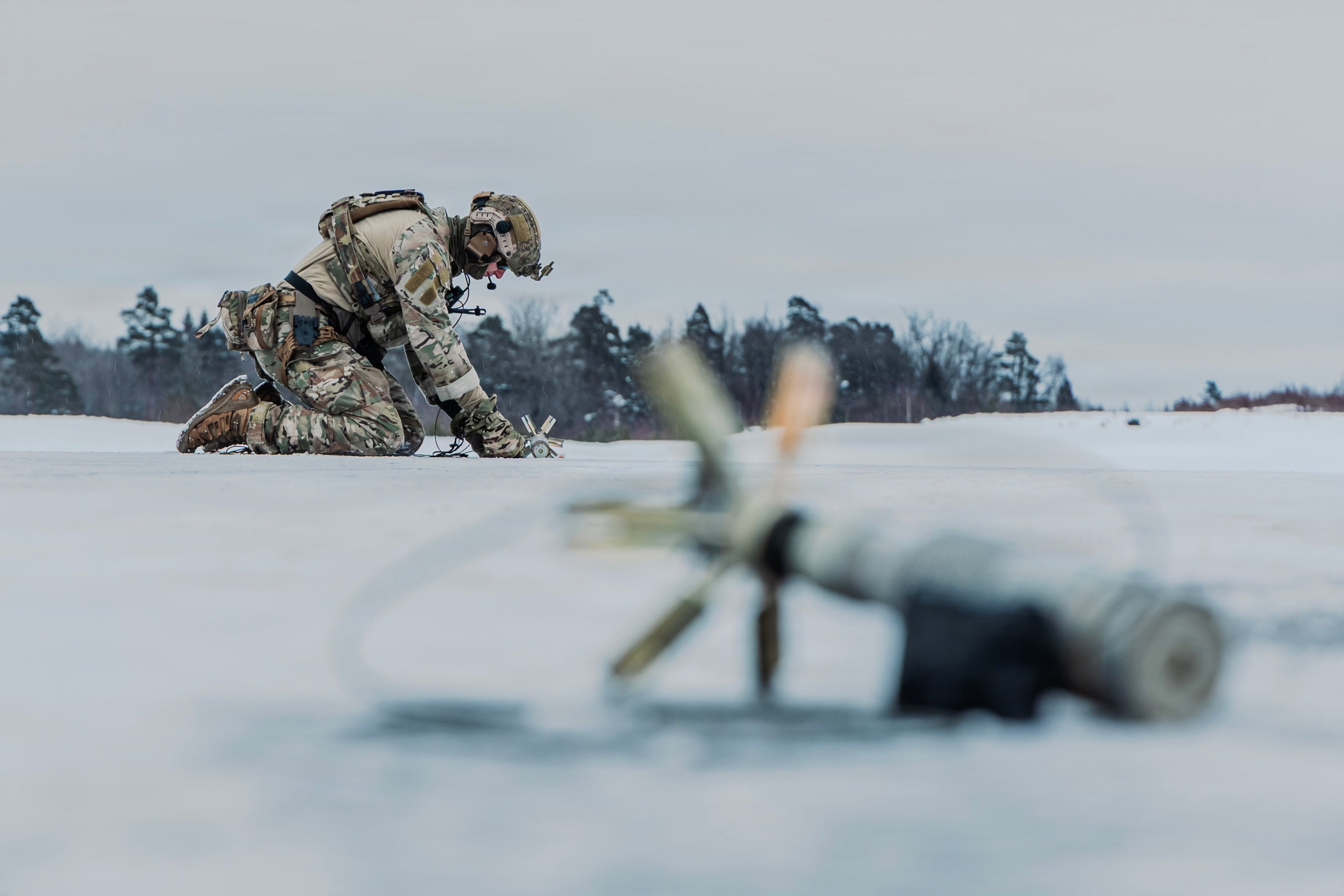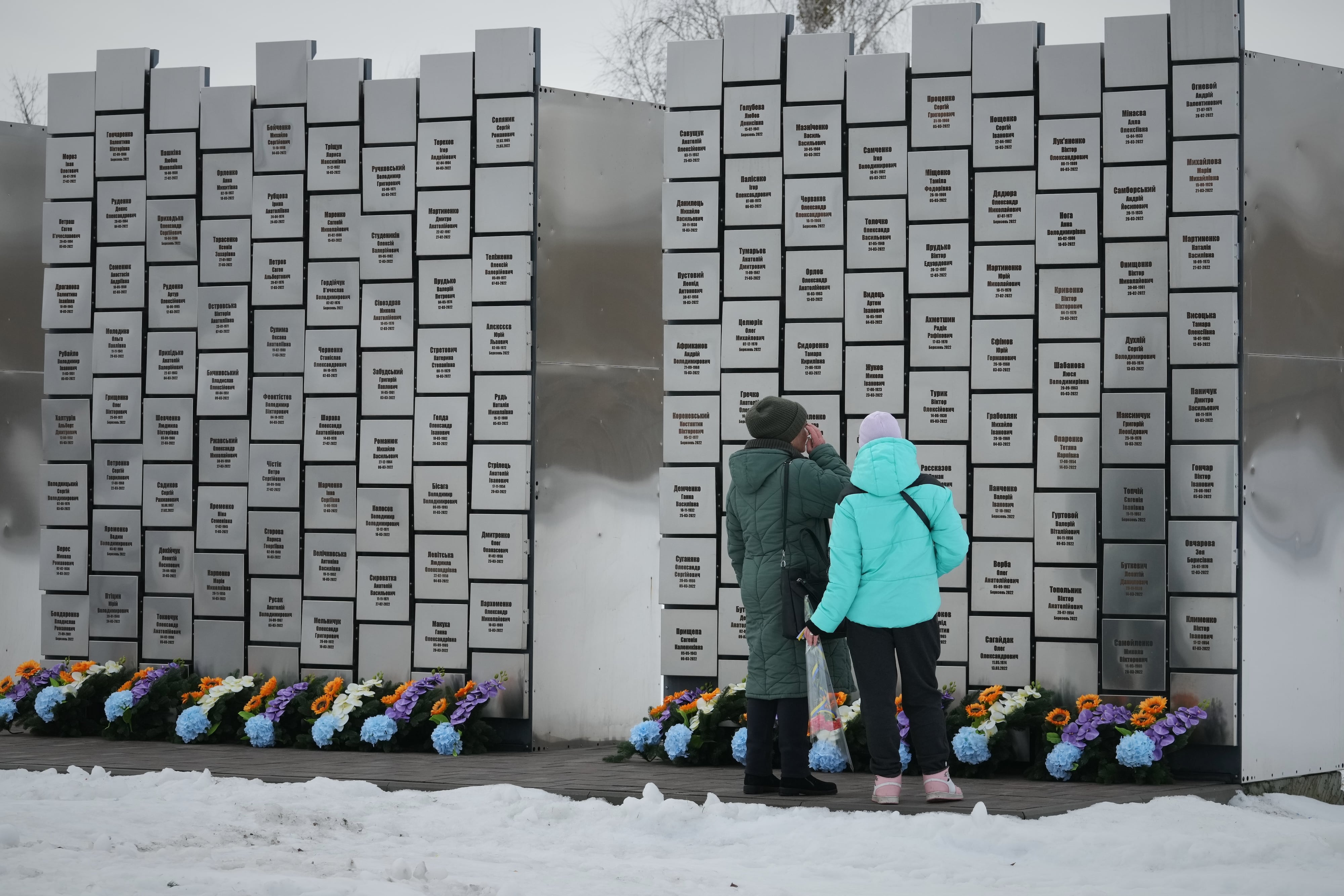A relatively small group of people were directly impacted by President Trump's Jan. 27 decision to ban border entry to the United States for people from seven predominantly Muslim nations.
No, we're not talking about the foreign nationals who showed up at U.S. airports, stunned to find out the entry visa they expected had been summarily revoked.
Instead, we're talking about the thousands of U.S. troops who are currently, right this moment, deployed to those countries that President Trump singled out as threats to the United States.
More than 5,000 troops wake up every morning with commanders' orders to work shoulder-to-shoulder with the people of Iraq, Syria and Somalia. And troops occasionally conduct missions with allies in Libya and Yemen. All of those nations were impacted by the immigration ban.
Those American troops believe in their mission because commanders for years have said those people are allies in America's fight against Islamic extremism.
We have to wonder, how were those missions — and those individuals — affected by Trump's immigration ban?
How did their "allies" react to the news that the Americans' commander in chief abruptly declared all people from those counties to be potential threats to the U.S. homeland?
How much time and energy is the top American commander in Iraq, Army Lt. Gen. Stephen Townsend, spending trying to diffuse the political tension? Probably a lot, since the Iraqi parliament has voted to retaliate with rules barring Americans from Iraq. It's not clear, legally speaking, how that will impact the U.S. mission there. But it will certainly be a headache for Townsend.
The uproar is a reminder of a gaping hole that former President Obama left in U.S. policy toward Iraq. There remains no Status of Forces Agreement between Washington and Baghdad to clarify the legal issues underpinning the presence of U.S. troops operating there. That leaves U.S. troops there open to legal prosecution, incarceration or deportation.
The lack of a SOFA agreement was a key reason U.S. troops withdrew completely in 2011. Yet Obama sent American troops back in 2014 without a SOFA, and, this time, top U.S. officials downplayed its importance. A SOFA would be helpful in resolving the tension right now.
Trump's immigration ban will also be felt down among the lower ranks, as it's bound to have some chilling effect on the sincere friendships between American troops and their allies in Iraq and Syria.
Those American service members depend not just on local military professionals but also translators, local contractors who provide logistical support, and, maybe most of all, the everyday Muslims — shop keepers, tribal leaders, clerics — who have the actionable intelligence to help defeat the Islamic State group.
Make no mistake — for many of the Muslim allies working with U.S. troops, Trump's sweeping and indiscriminate immigration ban was simply humiliating.
Yet for the Islamic State and its allies, Trump's executive order was hailed as a gift from Allah, a global public relations victory that money can't buy. It will make it far easier for ISIS propagandists to exhort those lone, unhinged jihadists out there to commit acts of violence against Americans.
Trump's immigration ban is a counterintuitive policy that warrants a little explanation from top leaders. Is the threat of terrorism at home so great — and this immigration ban so urgent — that it requires actions that jeopardize momentum in the counter-terrorism mission overseas? Is this a new ground-level risk that troops must accept?
Most Americans have never, and will never, drive around Iraq and Syria in Humvees, with all the risks that entails. But for that small group of Americans who do, the dusty roads and barren landscape there probably look a little bit lonelier and more ominous than they did just a few weeks ago.
In a bit of good news, the White House seemed to acknowledge some of these concerns a week after the ban was announced by amending its executive order regarding Iraq to allow entry into the U.S. for families of Iraqi interpreters who served the U.S. military forces.
All politics aside, this is about protecting the lives of U.S. service members.





